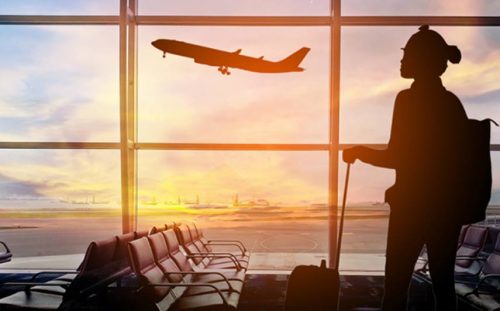New York, NY, United States, January 16, 2021 / TRAVELINDEX / Amidst climate, health and job fears, the UN’s worldwide consultation reveals optimism for the future and appetite for transformative global action
On January 8, the United Nations released the final report on a year-long consultation to mark its 75th anniversary. The report was launched by Under-Secretary-General Fabrizio Hochschild, Special Adviser to the Secretary-General on #UN75, at the regular press briefing in Geneva.
During the last 12 months, through surveys and dialogues, the Organization asked people across the world about their hopes and fears for the future, as well as their expectations and ideas for international cooperation, and for the UN in particular. Over 1.5 million people in 193 countries took part. The exercise was the UN’s most ambitious effort to date to gather input from the global public, and the largest survey on priorities for recovering from the COVID-19 pandemic.
“The UN75 global consultation showed that 97 percent of respondents support international cooperation to tackle global challenges. That represents a very strong commitment to multilateralism, and to the mission of the United Nations. Now it is up to us – Member States and the UN Secretariat – to meet the expectations of the people we serve.” Antόnio Guterres, Secretary-General, United Nations
Key findings of the final report include:
• As COVID-19 reversed progress in human development and widened inequalities, , respondents’ number one priority in the short-term is better access to basic services such as healthcare, education and water and sanitation. Many respondents, especially in low- and middle-income countries, prioritised support for the most affected people and communities. In countries with very high human development, fewer respondents viewed this as high as a priority. In the long-term, climate and environmental issues are seen as the top threat. Latin America and the Caribbean recorded the highest percentage of respondents selecting that answer – 73%. The lowest percentage was in Sub- Saharan Africa (37%).
• Other priorities vary according to income levels, but include rising concern about employment opportunities, human rights and conflict. In Northern Africa and Western Asia, for example, more respect for human rights is the highest priority. Globally, it is in the top three.
• Despite these concerns, 49% of global respondents believe people will be better off in 2045, compared with 32% who think people will be worse off. Respondents living in lower human development countries, and those living in conflict situations, are far more optimistic about the future than those living in higher human development countries and in countries not experiencing conflict.
• 97% of respondents believe that international cooperation is important for addressing global challenges. The degree of importance of international cooperation varies across regions, with Northern America recording the highest percentage of respondents who view it favourably.
• Many respondents look to the UN to lead in international cooperation to address immediate and longer-term global challenges, with calls for the Organization to innovate – to be more inclusive, engaged, accountable and effective.
The final report produced by the UN75 team will be available on www.un75.online. The presskit and data collected during the initiative can also be viewed, analysed and downloaded via that link.
Background
• In January 2020, the UN Secretary-General launched the UN75 initiative, not as a celebration, but as the world’s largest conversation about current global challenges, and the gap between the future we want and where we are headed if current trends continue.
• The Secretary-General saw UN75 as an opportunity for the UN to listen to the people it serves and identify their priorities and suggestions for enhanced global cooperation. UN75 was initiated to better understand people’s hopes and fears for the future, inviting people everywhere to imagine the future they want and contribute ideas on how to make it a reality, building a better and more sustainable world, for all.
• Through formal and informal surveys, and dialogues held across the world, the exercise was intended to take stock of global concerns and gain views from across the world on what sort of global cooperation is required. It was also intended to re-imagine what role the UN might play in helping to address our global challenges.
• After the pandemic made in-person gatherings challenging in many parts of the world, the initiative increased its efforts to reach people online, expanding the one-minute survey and social media outreach to shift their dialogues to online settings, where possible. At the same time, it put more emphasis – and resources – on reaching those without internet access: working closely with UN offices and other partners on the ground.
• For many, UN75 also took on larger significance, serving as a means to engage people of visceral concern amid growing uncertainty. By adding questions on building back better from the pandemic, it was able to conduct the largest and most diverse global survey to date on post-COVID priorities.
• More than 1.5 million people from all 195 UN Member and Observer States joined the UN75 conversation. Over 1.3 million people responded to the one-minute survey; hundreds of thousands of people from 100+ countries participated in UN75 dialogues; 50,000 people in 50 countries took part in representative polling by Edelman Intelligence and the Pew Research Center; hundreds of thousands of young people played UN75 games; and hundreds of researchers were engaged in a research mapping process. We estimate that through our collaborators’ extended networks and members, 60,000+ organizations and over 900 million people saw UN75 news, events and updates.
SustainableFirst.com partnered with UN75 to promote the one-minute survey.
• On 21 September, UN Member States adopted the Declaration on the Commemoration of the Seventy-Fifth Anniversary of the United Nations, in which they pledge to respond to the results of the global consultation and set out 12 Commitments for responding to global challenges.
• Guided by these commitments and by the feedback received through the UN75 initiative, the Secretary-General has launched a process of reflection on the future of multilateralism., aimed at generating recommendations for transformative global action to address shared problems, deliver on critical global public goods and prepare for the threats and opportunities of the future. The report will be made available at the end of the 75th session of the UN General Assembly in September 2021.











